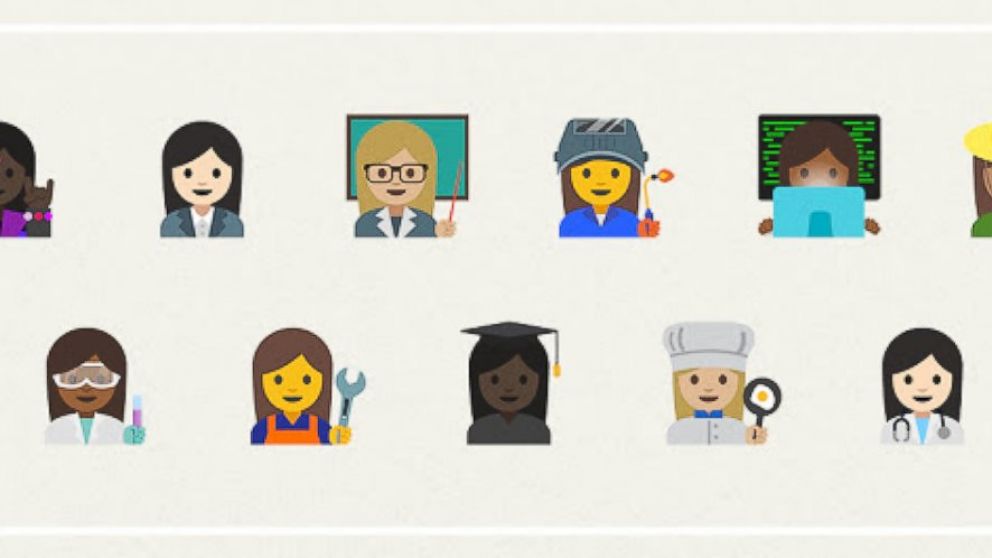New Icons Added to Emoji Set in Boost for Gender Equality
The 11 new professions will be available in male and female and all skin tones.

— -- The popular emoji set is getting a whole new cast of characters.
The new characters will number above 100, when the 11 new professions are represented in both genders and in the various skin tones that are traditional of the emoji set.
The additions are the result of a multi-week process that began with a petition filed by four Google employees to Unicode -- the consortium that governs the characters available on phones around the world.
“Women, STEM, and Emojis are something I’ve cared about for a long time,” Nicole Bleuel, a member of the group of Google employees who petitioned for additional characters, told ABC News, referring to the fields of science, technology, engineering and math.
Unicode moved quickly to make the character additions a reality.
“I think all of us were very gratified that upon presenting, Unicode fairly immediately understood and supported the importance of the proposal,” Bleuel recalled.
The consortium ultimately decided to proceed with adding 11 of the proposed 13 new characters, “after ensuring the final proposal had wide industry coverage and global applicability,” according to a Unicode document detailing the additions.
The new set includes professions such as farmer, health worker, coder, chef and rock star.
A second “healthcare representation” and “high-tech worker” did not make the cut.
In addition, male versions of some characters that were traditionally represented as female will also be added.
The actual imagery used for each emoji is decided by the device manufacturer, and Unicode only makes broad descriptions of what a character should look like.
According to the Unicode document, “vendors can begin design and implementation work now and can deploy before the end of 2016.”
But there's more progress to be made, Bleuel said.
“This is definitely a first step,” she said. “There’s always going to be room for improvement.”




